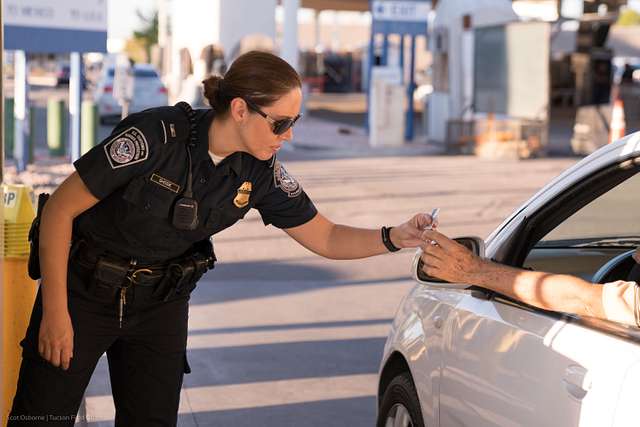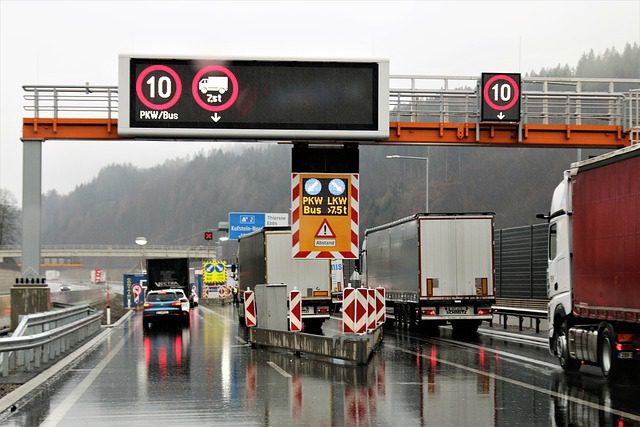Crossing a border can be exciting and adventurous for road travelers, but it’s important to be well-prepared to avoid potential issues or delays. Here is a border-crossing checklist to help ensure a smooth and seamless experience:
Table of Contents
Check the requirements for crossing borders.
Different countries have different entry requirements. Familiarize yourself with the specific requirements for the countries you will be visiting. This may include obtaining a visa, having a valid passport, or having certain documents for your vehicle.
Also, ensure you’re familiar with the country’s customs regulations and quarantine policies and any rules that might apply to the type of vehicle you’re driving.
Check for any travel advisories or warnings.
Before you embark on your trip, check for any travel advisories or warnings for the countries you will be visiting. This can help you stay informed about any potential risks or hazards you may encounter during your travels.
Check your vehicle’s documentation.
Make sure you have all the necessary documents for your vehicle, such as registration, insurance, and ownership papers. If you rent a car, make sure you have the rental agreement.
Check your personal documentation.
In addition to your passport, you may need other documents, such as a driver’s license, birth certificate, or proof of citizenship. Make sure you have copies of these documents if the originals are lost or stolen. If you plan on driving during your trip, consider obtaining an international driver’s permit to ensure legal compliance while abroad.
If you need to change your passport, you need to take care of this, of course, in advance. And don’t forget about photos – additionally, you can read about photobooth vs Walmart solutions.
If you’re traveling with children, make sure you have the necessary documents to prove they’re your own. You might also need proof of parental consent if they’re traveling with someone who isn’t their legal guardian.
Pack important items in your carry-on luggage
It’s a good idea to pack any important documents, medications, and valuables in your carry-on luggage in case your checked luggage is lost or delayed.
Have a copy of your itinerary
It’s a good idea to have a copy of your itinerary, including your accommodations and contact information, in case you are asked to provide it at the border.
Be aware of any restrictions on items you can bring across the border.
Each country has its own restrictions on what you can bring across the border, such as food, plants, and certain types of merchandise. Ensure you are aware of these restrictions and do not bring any prohibited items.
Declare any items you are bringing with you
Most countries require you to declare any items you bring, such as gifts or souvenirs. Ensure you are familiar with the declaration process and have any necessary documentation.
Check your vehicle for prohibited items.
Some countries have strict rules about what can be brought into the country by road travelers, such as certain types of weapons or illegal drugs. Check your vehicle carefully to ensure you are not transporting any prohibited items.
Be prepared for inspections.

It’s important to be prepared for inspections at the border, as customs officials may search your vehicle and belongings. Ensure you have all your documentation ready and cooperate with the inspection process.
Additional tips
- Plan ahead: Make sure you give yourself enough time to gather all the necessary documents and prepare for the border crossing. It’s better to be over-prepared than caught off guard.
- Learn some basic phrases in the language of the country you will be visiting: Even if you are not fluent in the language, learning some basic phrases can be helpful in communication and showing respect for the local culture.
- Know the rules of the road: Different countries have different rules for driving, such as the side of the road that vehicles should be driven on and the required speed limit. Familiarize yourself with these rules to avoid any accidents or traffic violations.
- Be prepared for potential delays: It’s possible that you may encounter delays at the border due to a high volume of road travelers or other unforeseen circumstances. Ensure you have plenty of snacks and entertainment options to keep you occupied during potential waits.
- Respect the laws and customs of the country: It’s important to respect the laws and customs of the country you are visiting. This includes not bringing in prohibited items, following local customs and traditions, and behaving respectfully.
- Stay safe: Make sure you have a plan in case of emergencies, such as a roadside assistance program or an emergency contact in the country you visit. Keep your phone charged, and consider purchasing travel insurance for added peace of mind.
Finally, road travelers should be aware of the wait times at the border. The wait times can vary depending on the time of day and other factors, so it’s important to plan ahead. It’s also a good idea to check with the embassy or consulate of the destination country to find out the most current wait times.
Once at the border, be prepared to answer questions about the purpose of your trip, the length of your stay, and the value of the goods you’re carrying.
Conclusion
Following this border crossing checklist can help ensure a smooth and hassle-free experience when traveling by road across international borders. Taking the time to prepare and plan ahead can help make your road trip even more enjoyable and stress-free.
Featured Image by Reinhard Thrainer from Pixabay




